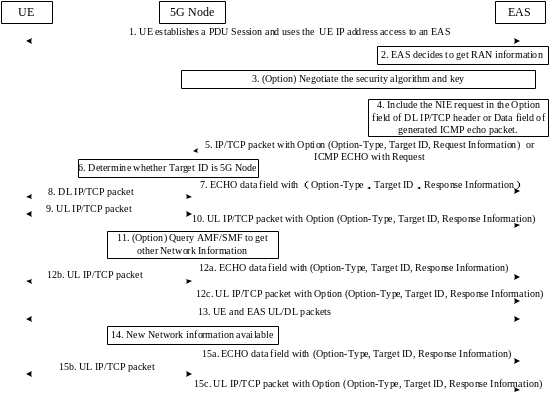ANSWERS TO THE COMPLEMENTARY QUESTIONS BY THE COMPLIANCE COMMITTEE
DEATH DYING & BEREAVEMENT ANSWERS (16) 1VIDEO TRAINING PRESSURE ULCER PREVENTION ANSWERS (15)
(THE ANSWERS ARE AT THE END OF THE DOCUMENT)
1 IN YOUR TEAM SHARE YOUR ANSWERS TO PART
2 FORM 40 RULE 2103(1)(A)(I) ANSWERS TO INTERROGATORIES NO
2014 HUMAN TRAFFICKING – PLACEMENT RFP QUESTIONS AND ANSWERS
The communicant´s criticism is to be understood in the context of the state of law in the Czech Republic where the systém of e
Answers to the complementary questions by the Compliance Committee of the Aarhus Convention to the Party concerned (Czech Republic)
Questions:
Please provide your comments to the statements of the communicant in paragraphs 50 and 51 of the communication.
Please provide the background and explain the reasons why the Czech legal systém differentiates between tenants and owners.
With respect to art. 9, para 2, of the Convention, and relating to the rights of non-governmental organizations (NGO´s), please provide, if possible, more recent court decisions than the 2010 decision mentioned in paragraphs 45 of the submissions of the Party concerned (dated 14 March 2011) (i.e. more recent decisions that the judgment of the Supreme Administrative Court of 13 October 2010, Ref. No. 6 Ao 5/2010-43).
Answers:
Ad 1)
The communicant´s criticism is to be understood in the context of the legal order in the Czech Republic where the system of environmental decision-making demonstrates a high degree of fragmentation. Thus for a realization of a certain plan there is a need of many partial permissions.
In the communication the communicant correctly describes the legal status concerning the issuing of the so called noise exemptions according the the Act. 258/2000 Coll. on Public health protection. The assumption of the Communicant that this regulation identifies the proposer of the project as the only participant in the decision-making process is valid.
Similar regulation has its place in the administrative permission procedure under the Act 18/1997 Coll., on the Peaceful use of Nuclear Energy.
The Czech Republic provided generall comments in its written statement to the communication (see para 35-38 there). We are taking the opportunity to once again repeat the already stated arguments (para 37 of the statement):
Furthermore, certain other administrative proceedings are pursued for the purposes of implementation of the project; as correctly stated by the communicant, participation of persons other than the applicant is explicitly excluded in these proceedings. However, the thus-limited scope of the parties, which in its consequence prevents other entities from contesting the decision in courts, is not contrary to the objectives set out by the Convention. Indeed, the nature of the proceedings in question is such that, in themselves, they do not provide authorisation to implement the project. Along with these proceedings, the investor must undergo other proceedings and only the latter result in the “principal” decisions that allow the investor to perform the project. Administrative proceedings on rendering these most important decisions (typically according to the Building Act) are fully open to the public concerned as described in par. 7 to 10 of this Statement, and here the members of the public concerned can also defend the interests of the environment. Subsequently, a person who claims that his rights have been impaired by such a decision of the administrative authority may claim that the decision be cancelled1. Where such a binding basis for the reviewed decision consisted in some other act of the administrative authority, the court shall also review the lawfulness of such an act at request of the plaintiff2.
In this context we would like to draw the attention of the Compliance Committee to the Art. 31 of the Act. 258/2000 Coll. on the Protection of Public Health according to which the permission (noise exemption) becomes obsolete if it is supplanted by the administrative procedure of integrated permission according to the Law on Integrated Prevention (Act. 76/2002 Coll.). The latter regulation defines a broader scope of the administrative procedure participants. According to the Art. 7 of this law the municipality on whose territory the facility is to be placed is also the participant as well as the regional authority, NGO´s, public service companies, confederation of employers or business chambers that aim for promotion and protection of professional or public interests. Thus the
Ad 2)
Concerning the second complementary question, the legal system of the Czech Republic distinguishes the conceptions of „tenant“ and „owner“ as two distinctive legal institutions. According to the Civil code the tenant is such a person to whom the lessor, through the tenancy contract, concedes against a payment an object to be used ad interim (in the agreed period) or to be benefited from. The relation of the tenant to the object is thus under all circumstances a mediated relation (in certain specified manner). Compared to this the owner of the object has direct and exclusive legal demesne over a certain object. To the property right corresponds the duty of all other objects not to disturb the owner in his executing the rights towards the object. The property right is the strongest and broadest right in rem. It is absolute right which affects all other persons (erga omnes).
The above mentioned fact is also reflected by the Building act (according to which most important decisions are issued for the majority of proposals that fall under Art. 6 of the Convention) that stipulates that the full-fledged participants of the land permit procedure are the owners of the neighbouring land estates, thus not the tenants. Similar construction is valid also in the relation to the building permit procedure. It is important to state that from the full-fledged participation in the procedure relatively broad entitlements emerge that go beyond the requirements of the Convention, including the right to appeal the decision.
In spite of this the legal regulation in force ensures the participation of public in both processess of land planning and land decision procedures. The public is enabled to become actively involved and to file comments in the process of creation of relevant kinds of land-planning documentation
In the land-planning procedure the participation of the public is ensured on the basis of the obligatory public proceedings which anyone can attend. The public proceeding constitutes the latest stage where comments are to be made to the planned project. Thus, it stands that at the public proceedings, at the latest, the full-fledged participants are to make comments. At the same time, everyone (thus also the tenant) can make comments to the suggested arrangement (Art. 89 of the Building act). In the final decision the competent authority decides about the comments of the participants and evaluates the comments made by public in the substantiation of its decision (Art. 92 para 1 of the Building act). For the purpose of providing information to the public information boards shall be placed where the authority deems necessary or at the land estate where the project is due to be realized.
Ad 3)
The tendency towards an extensive interpretation of the locus standi, including potential direct application of the EU acquis, has been relatively apparent recently in the decision-making process of Czech courts. Nevertheless, the cited decision of the Supreme Administrative Court of 13 October 2010 (Ref. No. 6 Ao 5/2010-43) can be viewed as a pioneering decision. In this regard the Ministry of the Environment is not aware of any similar decisions that would follow up or extend the above mentioned decision.
1 Section 65 (1) of the Code of Administrative Justice.
2 Pursuant to Section 75 (2) of the Code of Administrative Justice, “The court shall review the contested operative parts of the decision within the scope of the pleas. Where some other act of an administrative authority has constituted a binding basis for the decision being reviewed, the court shall also review its lawfulness on the basis of a plea, unless it is itself bound by it and unless this Act enables the plaintiff to contest such an act through a separate action in administrative justice“.
21%20Fiesta%20Brava%20DVD%20study%20guide%20questions%20and%20answers
312 QUIZ LP1 & LP2 QUESTIONS AND ANSWERS 1
34 TAXONOMY – QUESTIONS AND ANSWERS Q1 BK CH3
Tags: answers to, answers, questions, complementary, compliance, committee
- 29200 LECCIONES APRENDIDAS EN EL PROYECTO DE DESARROLLO DE
- GROUP 261 SCOTTISH MENTAL HEALTH CHARTER – SPORTSCOTLAND ACTION
- MEMORIA TÉCNICA DE DISEÑO BT MTD BT N DE
- WESTERN CONNECTICUT AREA AGENCY INC 84 PROGRESS LANE WATERBURY
- T HE NEW YORK BOTANICAL GARDEN BRONX GREENUP —
- CONSEJERÍA DE EDUCACIÓN Y CIENCIA CEIP “GLORIA FUERTES” C
- 2 TRADE POLICY REVIEW BODY 9 OCTOBER
- SUSTAINABLE TRAILS DOING IT RIGHT THE FIRST TIME BY
- MODELO DE CONVOCATORIA DE ASAMBLEA POR LOS REPRESENTANTES DE
- GUIDANCE FOR IMPLEMENTING HIGHQUALITY MULTIDISCIPLINARY MEETINGS ACHIEVING BEST PRACTICE
- UMOWA QUOAD USUM OKREŚLAJĄCA SPOSÓB KORZYSTANIA Z NIERUCHOMOŚCI ZAWARTA
- 14 ПРОЕКТ ПРАВИТЕЛЬСТВО ХАНТЫМАНСИЙСКОГО АВТОНОМНОГО ОКРУГА – ЮГРЫ ПОСТАНОВЛЕНИЕ
- HRVATSKE AUTOCESTE DOO ŠIROLINA 4 10000 ZAGREB OIB 57500462912
- REV 92011 SECTION 2 PROGRAM INFORMATION THE FOLLOWING FOUR
- DISCUSSION QUESTIONS 48 THE GOVERNMENT TYPICALLY USES ITS EMINENT
- ACTIVITY ID 07SCC04 USGS CMG FACS SAMPLING LOG EQUIPMENT
- DATE MR WILLIAM SMITH OAK CITY COMMUNITY FOUNDATION 111
- 1 POSZKODOWANY PO UPADKU Z DUŻEJ WYSOKOŚCI
- LITERACY ADDICTION MY NEXT STEP MAY BE THERAPY I’VE
- UCHWAŁA NR XIV682004 RADY MIEJSKIEJ W MIKOŁAJKACH Z DNIA
- JOB(05)53 PÁGINA 3 EL PROGRAMA DE PASANTÍAS DE LOS
- UNIDAD 4 POEMAS LENGUA EV NOMBRE Y APELLIDOS …………………………………………
- A LELKI ÉNEKEK MA HÁRMAS CSOPORTOSÍTÁS VANNAK
- BACKGROUND INVESTIGATION FORM TO BE COMPLETED BY ALL LIQUOR
- CONSTITUCION 1830 PRINCIPALES ARTÍCULOS ARTÍCULO 1º EL ESTADO ORIENTAL
- C TROT1 A POCKET WATCH AND BIG BEN ARE
- (IME I PREZIME) (PREBIVALIŠTEDRŽAVA MJESTO I ULICA
- RESOLUTION T 17459 DRAFT 1162014 CDABA PUBLIC UTILITIES COMMISSION
- ELEMENTÁRNÍ JEDNOTKY – STANDARDNÍ MODEL A MILIKANŮV EXPERIMENT PRACOVNÍ
- PTDC27 PÁGINA 2 OMPI S PTDC27 ORIGINAL INGLÉS FECHA
 SA WG2 TEMPORARY DOCUMENT PAGE 6 SA WG2 MEETING
SA WG2 TEMPORARY DOCUMENT PAGE 6 SA WG2 MEETING BÀI 2 THANG CUỐN VÀ BĂNG TẢI CHỞ
BÀI 2 THANG CUỐN VÀ BĂNG TẢI CHỞMICKY STAR CHILDREN’S CENTRE WINTER PROGRAMME DECEMBER 2013 –FEBRUARY
 CLAVES PARA EDUCAR HÁBITOS GENERALES DE HIGIENE Y SALUD
CLAVES PARA EDUCAR HÁBITOS GENERALES DE HIGIENE Y SALUDBASES ADMINISTRATIVAS ADJUDICACION DE MENOR CUANTIA Nº 07302007CEPAMPMN ENTIDAD
MEMBERS OF THE GREEK DELEGATION MINISTRY OF STATE MS
 E RNEST BEVIN COLLEGE – BEECHCROFT ROAD TOOTING LONDON
E RNEST BEVIN COLLEGE – BEECHCROFT ROAD TOOTING LONDON MANUAL DE INTERPRETACIÓN DE RESULTADOS BATERIAS CEIS 8º AÑO
MANUAL DE INTERPRETACIÓN DE RESULTADOS BATERIAS CEIS 8º AÑO UNIVERSIDAD DE CÓRDOBA CÓDIGO FDOC088 VERSIÓN 03 EMISIÓN 08032021
UNIVERSIDAD DE CÓRDOBA CÓDIGO FDOC088 VERSIÓN 03 EMISIÓN 08032021 IMPLEMENTATION OF ALGORITHMIC CORRECTION OF STRAY LIGHT IN A
IMPLEMENTATION OF ALGORITHMIC CORRECTION OF STRAY LIGHT IN A DECRETO NÚMERO DOS MIL SETECIENTOS SESENTA Y DOS POR
DECRETO NÚMERO DOS MIL SETECIENTOS SESENTA Y DOS POR GOVERNMENT OF NEWFOUNDLAND AND LABRADOR FIRE AND EMERGENCY SERVICES
GOVERNMENT OF NEWFOUNDLAND AND LABRADOR FIRE AND EMERGENCY SERVICESEVIDENČNÍ ČÍSLO SMLOUVY KKČÍSLOROK VEŘEJNOPRÁVNÍ SMLOUVA O POSKYTNUTÍ DOTACE
 4 TÊN CƠ QUAN CHỦ QUẢN … TÊN CƠ
4 TÊN CƠ QUAN CHỦ QUẢN … TÊN CƠ SUBSCRIPTION RATES 2022 WIDENING PARTICIPATION AND LIFELONG LEARNING IS
SUBSCRIPTION RATES 2022 WIDENING PARTICIPATION AND LIFELONG LEARNING IS MODELO NCA – 681 MANUAL DEL USUARIO PANEL FRONTAL
MODELO NCA – 681 MANUAL DEL USUARIO PANEL FRONTALJUEVES 3 DE MARZO DE 2016 DIARIO OFICIAL (PRIMERA
 ELEKTRICKÉ NAPÄTIE MERANIE NAPÄTIA ELEKTRICKÉ NAPÄTIE MÁ ZNAČKU U
ELEKTRICKÉ NAPÄTIE MERANIE NAPÄTIA ELEKTRICKÉ NAPÄTIE MÁ ZNAČKU U EQUIPO DIRECTIVO DIRECTORA TITULAR FELICIDAD SACRISTÁN DIRECTOR ACADÉMICO ÓSCAR
EQUIPO DIRECTIVO DIRECTORA TITULAR FELICIDAD SACRISTÁN DIRECTOR ACADÉMICO ÓSCAR SAKARYA ÜNİVERSİTESİ MÜHENDİSLİK FAKÜLTESİ METALURJİ VE MALZEME MÜHENDİSLİĞİ BÖLÜMÜ
SAKARYA ÜNİVERSİTESİ MÜHENDİSLİK FAKÜLTESİ METALURJİ VE MALZEME MÜHENDİSLİĞİ BÖLÜMÜ